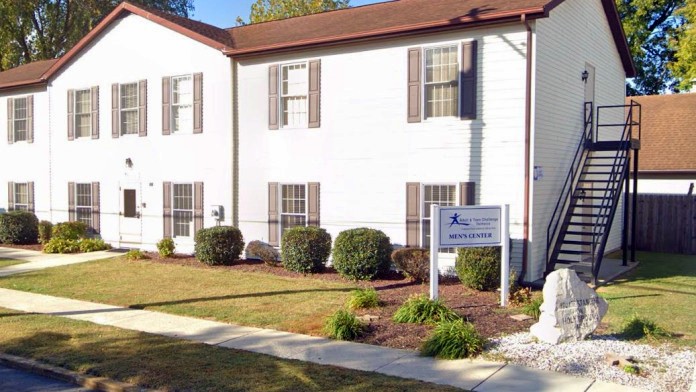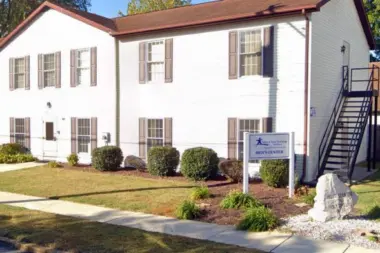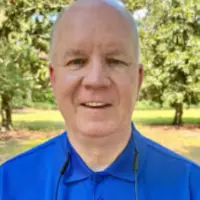About Delmarva Teen Challenge
Located near the meeting place of Williams Pond and the Nanticoke River in Seaford, Delaware, you’ll find Adult and Teen Challenge’s (ATC’s) Delmarva facility. This location is one of the sites where ATC offers their long term residential program for people looking to break out of a long cycle of addictive behaviors.
Delmarva is particularly geared towards housing and serving men aged 18 and older, but their associated facility, Home of Hope, offers the same program to women. At Home of Hope, mothers of young children are given the chance to have their children live with them and attend daycare during their stay.
Holistic Healing in Three Phases
The men’s residential program is a faith based course that consists of three broad phases, and can run for between 12 and 18 months, depending on your needs as well as the progress you make during the program. The first phase entails the laying of a healthy foundation and integration into the Delmarva facility’s community.
During this phase, you’ll learn about the program’s rules and get to know your guidance counselor. You’ll receive individual and group counseling, and will learn the basics of the program’s way of life, setting you up for the rest of your stay.
The second phase includes more counseling, but then adds educational and skill building opportunities into the mix. The idea behind this is to help you rebuild your life by not only tackling addiction and its root causes but also by arming your mind with theory and practical skills.
In the final phase, they pivot to preparing you to reintegrate into society before you graduate. This comes in the form of relapse prevention preparation and practical help, like finding mentors and accommodation.
A Safe and Focused Environment
They do not allow any mood altering substances or chemicals on their campus (including nicotine), giving everyone in the program the best possible chance to stick to their long term abstinence goal.
They also help you stay as focused on your healing and growth goals as possible through keeping costs low and offering scholarships. This allows you to walk your recovery journey without the constant worry of large medical or treatment bills.
Latest Reviews
Rehab Score
Gallery


Other Forms of Payment
Private insurance refers to any kind of healthcare coverage that isn't from the state or federal government. This includes individual and family plans offered by an employer or purchased from the Insurance Marketplace. Every plan will have different requirements and out of pocket costs so be sure to get the full details before you start treatment.
Self-pay involves paying for treatment out of your own pocket. You can use savings or credit, get a personal loan, or receive help from family and friends to fund your treatment. If you don't have insurance or your insurance plan doesn't cover a specific program, self-pay can help ensure you still get the care you need.
Medicaid is a state based program that helps lower-income individuals and families pay for healthcare. Medicaid covers addiction treatment so those enrolled can use their coverage to pay for rehab. When a program accepts Medicaid the client often pays very little or nothing out of their own pocket.
Medicare is a federal program that provides health insurance for those 65 and older. It also serves people under 65 with chronic and disabling health challenges. To use Medicare for addiction treatment you need to find a program that accepts Medicare and is in network with your plan. Out of pocket costs and preauthorization requirements vary, so always check with your provider.
Addiction Treatments
Levels of Care
Residential treatment programs are those that offer housing and meals in addition to substance abuse treatment. Rehab facilities that offer residential treatment allow patients to focus solely on recovery, in an environment totally separate from their lives. Some rehab centers specialize in short-term residential treatment (a few days to a week or two), while others solely provide treatment on a long-term basis (several weeks to months). Some offer both, and tailor treatment to the patient's individual requirements.
Treatments
The goal of treatment for alcoholism is abstinence. Those with poor social support, poor motivation, or psychiatric disorders tend to relapse within a few years of treatment. For these people, success is measured by longer periods of abstinence, reduced use of alcohol, better health, and improved social functioning. Recovery and Maintenance are usually based on 12 step programs and AA meetings.
Recovery is possible for those who complete drug rehab in Delaware. These programs specialize in providing an environment that encourages sobriety and a professional staff that provides the tools to overcome addiction. Participants receive a customized treatment plan tailored to their needs.
A combined mental health and substance abuse rehab has the staff and resources available to handle individuals with both mental health and substance abuse issues. It can be challenging to determine where a specific symptom stems from (a mental health issue or an issue related to substance abuse), so mental health and substance abuse professionals are helpful in detangling symptoms and keeping treatment on track.
Opioid rehabs specialize in supporting those recovering from opioid addiction. They treat those suffering from addiction to illegal opioids like heroin, as well as prescription drugs like oxycodone. These centers typically combine both physical as well as mental and emotional support to help stop addiction. Physical support often includes medical detox and subsequent medical support (including medication), and mental support includes in-depth therapy to address the underlying causes of addiction.
Delaware drug and alcohol rehabs can help you overcome substance abuse and addiction. These programs address the root cause of your addiction and help you to develop healthier coping strategies through a range of evidence-based therapies and counseling. Programs are typically offered on an outpatient, inpatient, and partial hospitalization basis. You may also access recovery support meetings, family counseling, and skill development classes, all of which will help you sustain your sobriety.
Programs
Adult rehab programs include therapies tailored to each client's specific needs, goals, and recovery progress. They are tailored to the specific challenges adult clients may face, including family and work pressures and commitments. From inpatient and residential treatment to various levels of outpatient services, there are many options available. Some facilities also help adults work through co-occurring conditions, like anxiety, that can accompany addiction.
Men face specific challenges and concerns when seeking addiction treatment. Gender-specific recovery programs help them tackle these issues head-on in an environment that's focused, targeted, and distraction-free. It also gives them the opportunity to connect with and learn from other men who have been through a similar journey and can offer support for the next step.
Rehabs for women provide a safe, nurturing space for female clients to heal. These treatment programs consider the specific obstacles that women can face during recovery and place a special emphasis on mental, social, physical, and reproductive health. They explore how each woman's experience has shaped the trajectory of their substance use, addressing issues such as sexual abuse and past trauma.
Clinical Services
Group therapy is any therapeutic work that happens in a group (not one-on-one). There are a number of different group therapy modalities, including support groups, experiential therapy, psycho-education, and more. Group therapy involves treatment as well as processing interaction between group members.
Life skills trainings involve all the skills a person must have in order to function successfully in the world. These include time management, career guidance, money management, and effective communication. Truly successful addiction recovery is based on the ability to not only live substance-free, but to thrive. Life skills teaches the practical necessities of functioning in society, which sets clients up for success in life, and therefore sobriety.
Amenities
-
Residential Setting
Staff

Bob Carey
Executive Director

Jill Long
CFO
Contact Information
611 3rd and North Street
Seaford, DE 19973